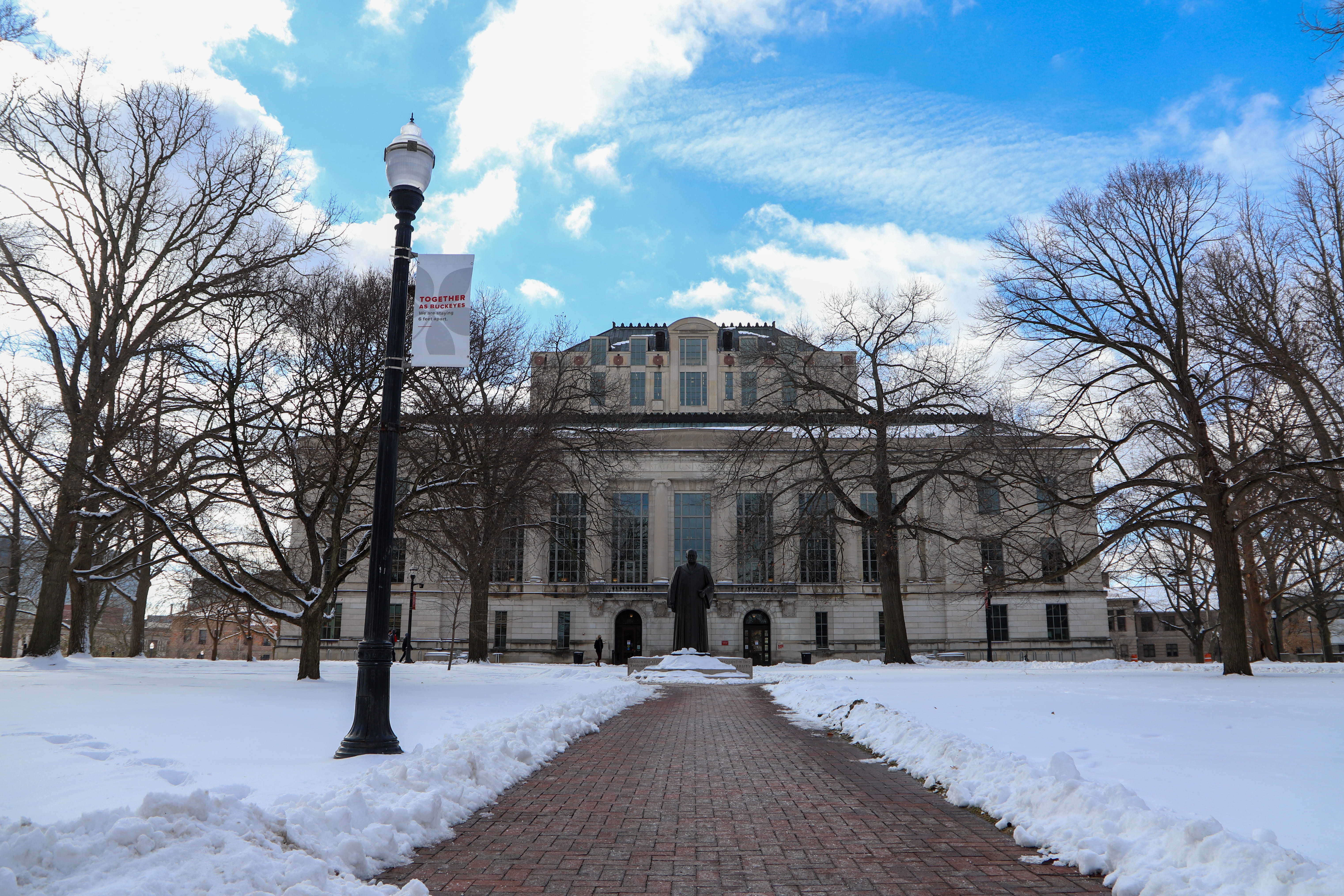
The Undergraduate Student Government established a disability emissary seat and formally recognized May as Asian, Pacific Islander and Desi American Heritage Month at its general assembly meeting Wednesday night. Credit: Mackenzie Shanklin | Photo Editor
The Undergraduate Student Government continues to expand its representation of different groups of students through additions to its General Assembly and adding to its May agenda.
USG passed two resolutions unanimously Wednesday: one to establish a disability emissary seat within the General Assembly and another recognizing Asian, Pacific Islander and Desi American Heritage Month as well as addressing xenophobia and racism on campus.
Alex Poling, deputy director of USG’s Sustainability Committee, said the emissary seat will represent disabled students, providing them the same speaking rights as senators and the ability to present legislation, such as resolutions to create live captioning for meetings on Zoom.
About 6 percent of Ohio State’s student body is registered with the university’s Student Life Disability Services, which Poling said is the only resource people with disabilities have on campus. Poling said he proposed the resolution to give disabled students official representation.
Poling said he noticed ableism in USG through his own personal experience with Ehlers-Danlos Syndrome — a disease that affects connective tissue such as joints, skin and blood vessel walls — by not being able to attend events because he needed to go up stairs.
“I think I’ve really learned a lot in the past year about what disabled students actually deserve and how different that is from what we’re getting,” Poling, a second-year in environmental science, said.
Poling said other ways USG is inaccessible for disabled students is in its lack of captioning for online meetings, no sign language interpreters at events, no contacts on event fliers for disability accommodations and no alternative text on USG’s social media or website.
The co-sponsors of the resolution were Delaney Durham, legislative coordinator for the Academic Affairs Committee and natural and mathematical sciences senator and a second-year in zoology; Abigail Berk, legislative coordinator for the Health and Safety Committee and a second-year in biomedical science; and Anshul Singh, on-campus living area senator and a second-year in computer science.
“Coming from such a place of able-body privilege, I would have never even come close to imagining that those things were happening in USG, and it was just absolutely unacceptable,” Durham said.
To find applicants, Poling said he will share the news of the vacant seat with Buckeyes for Accessibility and in the SLDS newsletter.
The emissary seat, however, must be voted on again once the new administration in April is sworn in, Poling said. The seat, according to the USG Constitution, must be voted on every term.
“Disabled students are facing unique challenges that USG cannot properly address without representation,” Poling said.
USG also passed a resolution to recognize May as APIDA Heritage month, sponsored by Gabe Myers, on-campus living area senator and a second-year in neuroscience; Kenneth Harvey, committee representative of the Diversity and Inclusion Committee and a fourth-year in civil engineering; Kelsey Lowman, legislative coordinator for the Diversity and Inclusion Committee and a third-year in political science and public affairs; and Sai Nune, engineering senator and a third-year in industrial and systems engineering.
According to the resolution, USG will now celebrate the culture of Asian, Pacific Islander and Desi Americans, commemorate the anniversaries of the first Japanese immigrants’ arrival to the United States and condemn the racism and xenophobia against Asian Americans and Pacific Islanders on campus during the pandemic.
“I think that the Asian-American community and the PIDA community has become a very large population lately, and a lot of the racism and xenophobia showed towards this minority is hidden and also done in a manner where it pulls fun in a way that it doesn’t seem as serious,” Nune said. “But the truth is, even this can be really harmful, and I think it’s important to recognize our existence in the country, and especially during COVID.”


